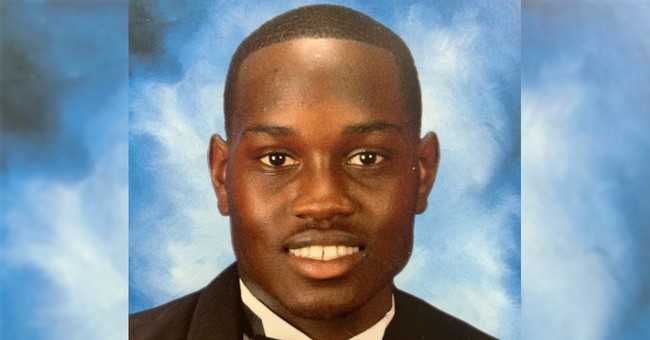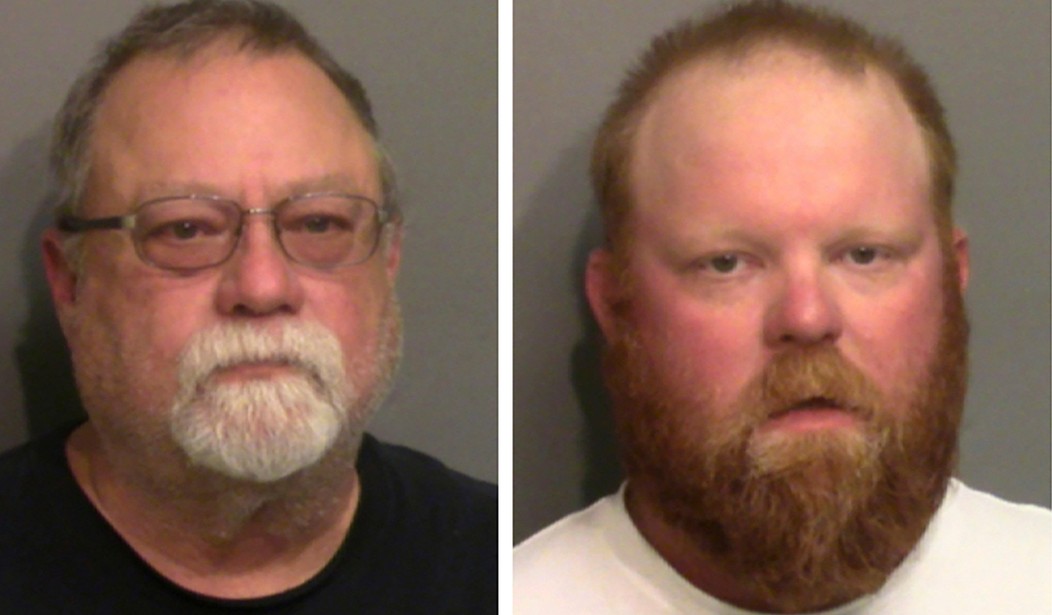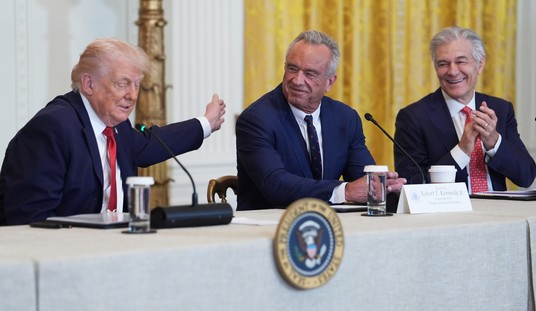
It appears we might have another glimpse into the strategy that the defense attorneys representing the three men accused of killing Ahmaud Arbery might use. In a recent appearance on “48 Hours” with CBS News correspondent Omar Villafranca, the lawyers gave their first, in-depth network television interviews.
As Gregory McMichael, his son Travis, and their neighbor William “Roddie” Bryan await trial, the prosecution and defense spoke with Villafranca about the case. The reporter also interviewed members of Arbery’s family, along with his friends, for the broadcast.
Laura and Frank Hogue, the attorneys representing the McMichaels, argue that the two men’s actions were not motivated by racial animus. “I don’t believe Gregory McMichael is a racist,” said Laura. Frank agreed, insisting that, “It’s not just two white men out there hunting down, trapping, and executing a black man, as the prosecution characterized it. …That is not what happened.”
The lawyers argue that their client is being unfairly judged because of the short video showing the shooting that claimed Arbery’s life. Instead, the attorneys contend that the elder McMichael should be judged by his law enforcement year and his actions earlier in his life.
Frank Hogue told a story about how Gregory saved a man’s life when he was serving in the Navy. “Greg paddled out into the surf and was able to get this distressed sailor up onto the surfboard … and got him to the beach. … And the sailor he saved was an African American sailor,” he explained.
Jason Sheffield and Bob Rubin, who are representing Travis McMichael, also asserted that this case is not about race. “This case is about a good man who had to defend himself on February 23, 2020 — when he was in a terrible situation,” Rubin told Villafranca.
The defense is arguing that the McMichaels were trying to stop Arbery because they suspected that he was a burglar who had been stealing from houses in the area. They claim that the elder McMichael recognized him from security footage. “The only reason the gun came into play is because Ahmaud Arbery attacked Travis McMichael,” Rubin insisted. Law enforcement stated that there was no evidence that Arbery had been involved in any burglaries in the area.
The police report stated that the McMichaels were yelling at Arbery to stop running. It indicated that, after Travis stopped the truck and exited with his weapon, Arbery “began to violently attack Travis and the two men then started fighting over the shotgun.”
Rubin argued that Travis was afraid. “He’s being attacked and overwhelmed by Ahmaud Arbery’s strength. And he has to either fire that gun or lose his life at that point.”
But Cobb County Prosecutor Jesse Evans countered the lawyers’ narrative by pointing out that it was the McMichaels who instigated the situation. He said, “Clearly, the person that started this were Greg and Travis McMichael. … When they make the choice that they’re gonna grab guns and take the law into their own hands, that’s when this crime starts. It doesn’t start at the end of this whole progression out in the middle of the street.
The defense attorneys also pointed out that the community in which the shooting happened was already on edge, due to a “buzz around the neighborhood about all the property crimes that were occurring.”
Along with the heightened tensions and supposed fear of Arbery, the attorneys also claim that the McMichaels were justified in chasing Arbery down on that day. Frank Hogue argued that Gregory McMichael decided to pursue Arbery, because “he had a thought, a feeling, a gut instinct,” that Arbery was up to no good.
“As citizens in the state of Georgia, like many other states … they have … a right to detain others where they have probable cause to believe a crime is being committed,” Rubin pointed out. But Evans took issue with this pronouncement. “There is absolutely no legal right for a person to stop somebody merely on a hunch or a gut feeling, which is exactly what Greg McMichael said that he had.”
When Villafranca asked if “reasonable suspicion” was enough to justify the chase, Evans replied, “absolutely not.” He continued, “Any single shot was too much. Merely pointing that shotgun at somebody was too much. Getting in pickup trucks and chasing Ahmaud Arbery down was too much. This whole case is too much.”
Attorneys representing William “Roddie” Bryan, the third, accused suspect, claimed that their client was not directly involved in Arbery’s killing. Kevin Gough stated that his client was at home when he saw the McMichael’s truck chasing Arbery, so he got into his truck and joined the pursuit. He argued that “He’s never been more than a witness to this shooting.”
However, Evans noted that Bryan was more involved in this incident than Gough let on. He pointed out that Bryan never called 911 and actually hit Arbery with his truck during the chase in an attempt to box him in. “We think he’s an active participant,” Evans said.
When Villafranca pointed out that there were dents on Bryan’s truck, Gough responded, “Well … There is no evidence that Mr. Bryan did anything improper with his vehicle.” The lawyer even implied that Arbery may have dented the truck while trying to steal it. “The state’s gonna have to address … is — is that evidence more consistent with a carjacking or attempted carjacking than Mr. Bryan engaging in any improper conduct,” he opined.
The overall strategy here seems to be casting Arbery as the aggressor in this situation, without focusing on the actions of the McMichaels. The lawyers appear to be trying to downplay the racial angle while arguing that their decisions were legal and justified. “The simplest explanation for what went on here is that Mr. Arbery charged Travis McMichael,” Gough alleged.
Despite the lawyers’ implying that race could not have played a role in this incident, there is evidence indicating that a level of prejudice could have been present in this situation. Roddie Bryan previously testified that Travis called Arbery a racial slur after killing him.
When Villafranca asked Gough if Bryan held similar views, the lawyer answered, “Roddie Bryan doesn’t have a hateful bone in his body.” However, investigators found that his phone was full of racist texts. On Martin Luther King, Jr. Day, he texted, “I bet y’all are having a Monkey parade over there.” Law enforcement also compiled multiple pages of Bryan using the N-word. Gough insisted that these message were taken out of context.
A Georgia Bureau of Investigation agent named Richard Dial also found similar text messages on Travis’ phone. When asked if he had seen other evidence that he used the N-word on other occasions, Dial answered, “Yessir, many times.”
While the racial component of this case might not be as easy to prove, the attorneys defending the three men have their work cut out for them. The actions of the McMichaels and Bryan were questionable from the very beginning, and it was a situation that could have easily been avoided by calling the police instead of taking matters into their own hands.
The trial date for the three men has not yet been set due to delays caused by the COVID-19 pandemic.
Let me know what you think in the comments below!
Follow me on Twitter: @JeffOnTheRight











Join the conversation as a VIP Member